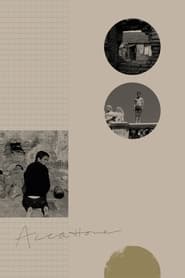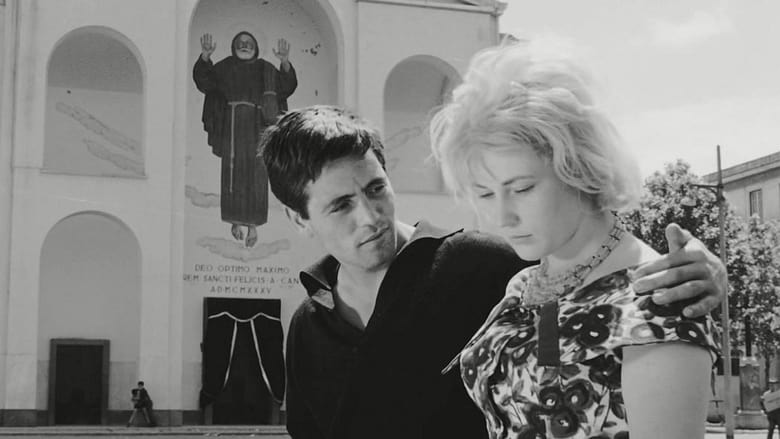“Accattone 1961” is a gritty tale of poverty and desperation in post-war Italy. Its eponymous antihero, Accattone, is a con artist and pimp who preys on the vulnerable women around him. Director Pier Paolo Pasolini creates an unflinching portrait of a decaying society, where even the most basic human needs are hard to come by. The film is a powerful indictment of Italian class divisions and the harsh realities of life at the bottom rung of society.

CLICK HERE⇟⇟⇟👉🏼_Watch Accattone 1961 English Subtitles_
Review
Accattone: A Gritty Tale of Life on the Margins
In the world of cinema, few films have captured the stark realities of poverty and desperation quite like Accattone. Directed by Pier Paolo Pasolini, this 1961 masterpiece is a powerful portrayal of life on the fringes of society, exploring themes of survival, crime, and redemption. From its raw performances to its haunting score, Accattone continues to captivate audiences with its unflinchingly honest depiction of a harsh world.
The Storyline
Set in post-war Rome, Accattone follows the life of a small-time pimp named Vittorio “Accattone” Cataldi (played by Franco Citti). Desperate for money following his girlfriend’s imprisonment, Accattone turns to prostitution as his primary source of income. However, when his latest conquest dies from an overdose, Accattone is forced to confront the harsh realities of his lifestyle.
As he struggles to make ends meet and avoid authorities who are closing in on him and his associates, Accattone must also contend with his own inner demons. The film explores themes such as morality and redemption as we see Accattone gradually come to terms with the consequences of his actions.
The Cast
At its core, Accattone’s strength lies in the performances of its cast. Franco Citti delivers a tour-de-force performance as Vittorio “Accattone” Cataldi, showcasing both his character’s vulnerability and ruthlessness with equal intensity. Meanwhile, actress Franca Pasut is equally impressive as Stella—one of Accattone’s prostitutes—who seeks to break free from her abusive relationship with him.
Other standout performances come from Silvana Corsini as Maddalena—a mother struggling to survive despite her circumstances—and Paola Guidi as Nannina—a young woman caught up in a life of prostitution against her will.
The Filming
Filmed in a gritty, documentary-style black and white, Accattone is a stunning example of Italian neorealism. Director Pier Paolo Pasolini eschews traditional Hollywood glamour for a raw and unvarnished look at life on the streets. Filmed entirely on location, the film captures the harsh realities of poverty-stricken Rome with an authenticity that is both visceral and unforgettable.
The Music
Accattone’s score is another standout feature of the film. Composed by Italian composer Carlo Rustichelli, it features hauntingly beautiful melodies that perfectly complement the film’s themes and visuals. The score ranges from melancholic to frenzied, capturing the full range of emotions experienced by its characters.
The Popularity
Despite its success upon release, Accattone remains somewhat obscure today compared to other neorealist classics such as Bicycle Thieves or La Strada. However, its impact on cinema has been significant, with many filmmakers citing it as an influence on their work. It also marked Pasolini’s transition from literature to cinema—a medium in which he would achieve even greater acclaim with films like Mamma Roma and The Gospel According to St. Matthew.
The Awards
Though Accattone was not widely recognized during its initial run, it did receive critical acclaim from some sources. The film won Best Film at the San Francisco International Film Festival and was nominated for a Golden Lion award at the Venice Film Festival. In recent years, it has become more widely recognized as a classic of Italian cinema.
The Cinematography
Accattone’s cinematography is another standout feature of the film that enhances its stark realism. Director of photography Tonino Delli Colli captures the rough textures and stark contrasts of Rome’s streets with visceral detail through his use of deep focus camera techniques and chiaroscuro lighting. This approach creates a dynamic sense of motion throughout scenes while emphasizing their emotional intensity.
The Opinion
Accattone remains a powerful and timeless work of cinema, highlighting the complexities of life on the fringes and the battle for survival in a harsh world. Its exploration of issues such as poverty, crime, morality, and redemption resonates with audiences to this day. Its raw performances, haunting score, and stark cinematography combine to create an unforgettable film that continues to captivate viewers.
The Conclusion
In a world where films often escape into fantasy or grandeur, Accattone stands out as a refreshing reminder of cinema’s ability to reflect the realities that surround us. Though it may not be widely known outside academic circles today, its impact on Italian cinema cannot be overstated. For those seeking a gritty and honest portrayal of life on the fringes, Accattone is an essential viewing experience that should not be missed.
Technical Data

- Runtime : 117
- Release : 1961-09-25
- Genre : Drama
- Cast : Franco Citti as Vittorio “Accattone” Cataldi, Franca Pasut as Stella, Silvana Corsini as Maddalena, Paola Guidi as Ascenza, Adriana Asti as Amore
- Crew : Tonino Delli Colli as Director of Photography, Nino Baragli as Editor, Bernardo Bertolucci as Assistant Director, Pier Paolo Pasolini as Screenplay, Pier Paolo Pasolini as Director
- Popularity 9.435
- Budget : 0
- Revenue : 0
- Company : Cino del Duca, Arco Film
- Summary : A pimp with no other means to provide for himself finds his life spiralling out of control when his prostitute is sent to prison.
- Tagline : The Poor Man’s “Dolce Vita”
